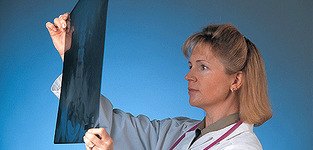Frequently Asked Questions About Slipped Discs
October 31st, 2021 In our experience many people assume their acute low back pain or Sciatica is caused by a ‘slipped disc’.
In our experience many people assume their acute low back pain or Sciatica is caused by a ‘slipped disc’.In our experience many people assume their acute low back pain or Sciatica is caused by a ‘slipped disc’. This is not always the case. However, disc problems can, and do, arise.
In reality, discs don’t actually slip, they become inflamed. A spinal disc is like a cushion between the front parts, or bodies, of the vertebrae. Just like a cushion, they can become misshapen and a bulge can form, pressing onto the nerve (a disc bulge), causing Sciatica. Chiropractic can often help a swollen disc. Specific adjustment of the spine can help to reduce inflammation in the area which reduces pressure on nerves, reducing pain and decreasing muscle spasm.
How Does a Slipped Disc Happen?
While it is possible to slip a disc at the neck to upper back, the event most commonly occurs in the lower back. The pressure caused by a slipped disk needs only irritate a single nerve to make you feel uncomfortable.
It’s important to recognise the symptoms of a potential problem immediately, rather than exacerbating the problem with continued movement and a lack of medical attention.
What Does a Slipped Disc Feel Like?
Slipped discs usually manifest as numbness in the sides, travelling to the extremities. If you begin to feel severe pain or even tingling that intensified in the evening and is made worse by normal movement, you may have a slipped disc.
Other Sensations to Consider:
If it hurts to sit or walk, you may have slipped or herniated a disc in your back. The movement that caused the rupture could have been minimal. Be mindful of weakness in the muscles, aching, and most importantly, a burning sensation. Numbness in the arms and legs is a serious symptom often difficult to overlook.
Do Slipped Discs Only Happen to Older People?
The chances of slipping or herniating a disc increase with age; the discs start to lose hydration and elasticity due to natural spine degeneration. Younger people can also develop disc herniations, however.
Factors That Increase the Likelihood of a Slipped Disc:
The body becomes less forgiving as it ages. In the case of vertebral discs, this happens as the protective water content ‘goes arid’ with time.
Additionally, those that carry more weight than is healthy are more likely to suffer from the strain being put on this limited protection between your bones. In general, smoking, excess alcohol consumption, and lack of exercise also does not help.
Should I get help?
You should never ‘soldier through’ something if avoidable. If you had a stabbing pain in a vital organ, you would already be at the hospital.
Why would you treat your back differently? You only have one, and it houses the bulk of your nervous system. It’s better to see a specialist early than to wait for things to become worse.
What Are the First Treatment Steps?
Most often physical therapy is enough to ease the symptoms of a slipped disc and allow the herniation to heal. Treatments that relieve pressure and increase blood circulation can make a world of difference.
What additional things can you do?
At Well Adjusted Health we individually assess each case. Often with people the temptation is to avoid things that cause pain, but in the case of slipped disc, it’s possible that you need to strengthen the area that failed, so we would recommend stretches that relieve the pressure or other exercises that can make a positive difference.
With disc problems, it’s far better to seek help before the inflammation in the disc becomes very severe.
If you have a specific question regarding any pain or problem areas, or would like to book a Free 15 minute consultation for you or your family please call Well Adjusted Health
on 01903 892171
In reality, discs don’t actually slip, they become inflamed. A spinal disc is like a cushion between the front parts, or bodies, of the vertebrae. Just like a cushion, they can become misshapen and a bulge can form, pressing onto the nerve (a disc bulge), causing Sciatica. Chiropractic can often help a swollen disc. Specific adjustment of the spine can help to reduce inflammation in the area which reduces pressure on nerves, reducing pain and decreasing muscle spasm.
How Does a Slipped Disc Happen?
While it is possible to slip a disc at the neck to upper back, the event most commonly occurs in the lower back. The pressure caused by a slipped disk needs only irritate a single nerve to make you feel uncomfortable.
It’s important to recognise the symptoms of a potential problem immediately, rather than exacerbating the problem with continued movement and a lack of medical attention.
What Does a Slipped Disc Feel Like?
Slipped discs usually manifest as numbness in the sides, travelling to the extremities. If you begin to feel severe pain or even tingling that intensified in the evening and is made worse by normal movement, you may have a slipped disc.
Other Sensations to Consider:
If it hurts to sit or walk, you may have slipped or herniated a disc in your back. The movement that caused the rupture could have been minimal. Be mindful of weakness in the muscles, aching, and most importantly, a burning sensation. Numbness in the arms and legs is a serious symptom often difficult to overlook.
Do Slipped Discs Only Happen to Older People?
The chances of slipping or herniating a disc increase with age; the discs start to lose hydration and elasticity due to natural spine degeneration. Younger people can also develop disc herniations, however.
Factors That Increase the Likelihood of a Slipped Disc:
The body becomes less forgiving as it ages. In the case of vertebral discs, this happens as the protective water content ‘goes arid’ with time.
Additionally, those that carry more weight than is healthy are more likely to suffer from the strain being put on this limited protection between your bones. In general, smoking, excess alcohol consumption, and lack of exercise also does not help.
Should I get help?
You should never ‘soldier through’ something if avoidable. If you had a stabbing pain in a vital organ, you would already be at the hospital.
Why would you treat your back differently? You only have one, and it houses the bulk of your nervous system. It’s better to see a specialist early than to wait for things to become worse.
What Are the First Treatment Steps?
Most often physical therapy is enough to ease the symptoms of a slipped disc and allow the herniation to heal. Treatments that relieve pressure and increase blood circulation can make a world of difference.
What additional things can you do?
At Well Adjusted Health we individually assess each case. Often with people the temptation is to avoid things that cause pain, but in the case of slipped disc, it’s possible that you need to strengthen the area that failed, so we would recommend stretches that relieve the pressure or other exercises that can make a positive difference.
With disc problems, it’s far better to seek help before the inflammation in the disc becomes very severe.
If you have a specific question regarding any pain or problem areas, or would like to book a Free 15 minute consultation for you or your family please call Well Adjusted Health
on 01903 892171
Comments (0)
No comments have been submitted yet.Why not be the first to send us your thoughts
Leave A Comment
Thank you for your comments, they will appear shortly once approved.
Recent Posts
Have You Seen...






